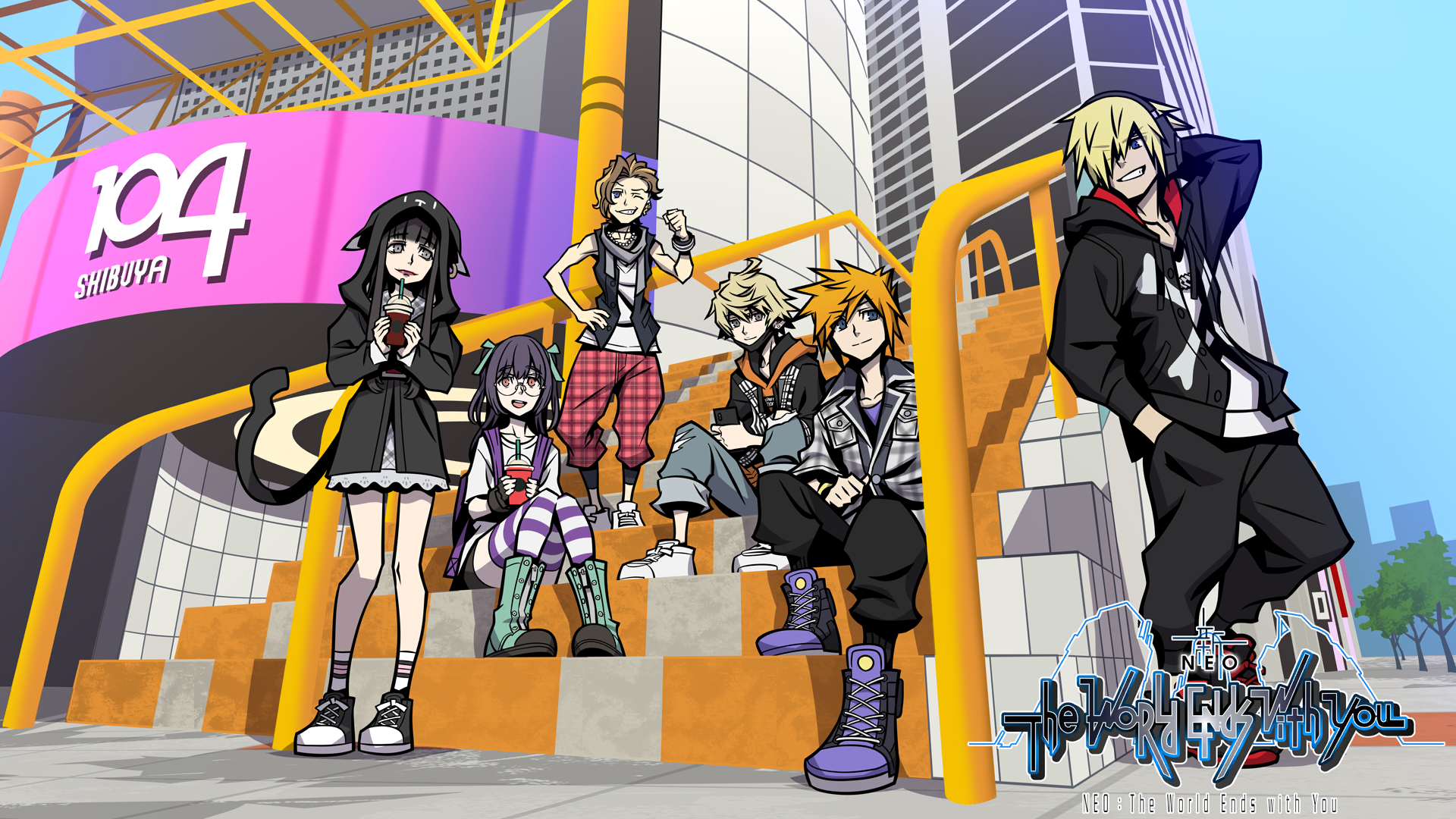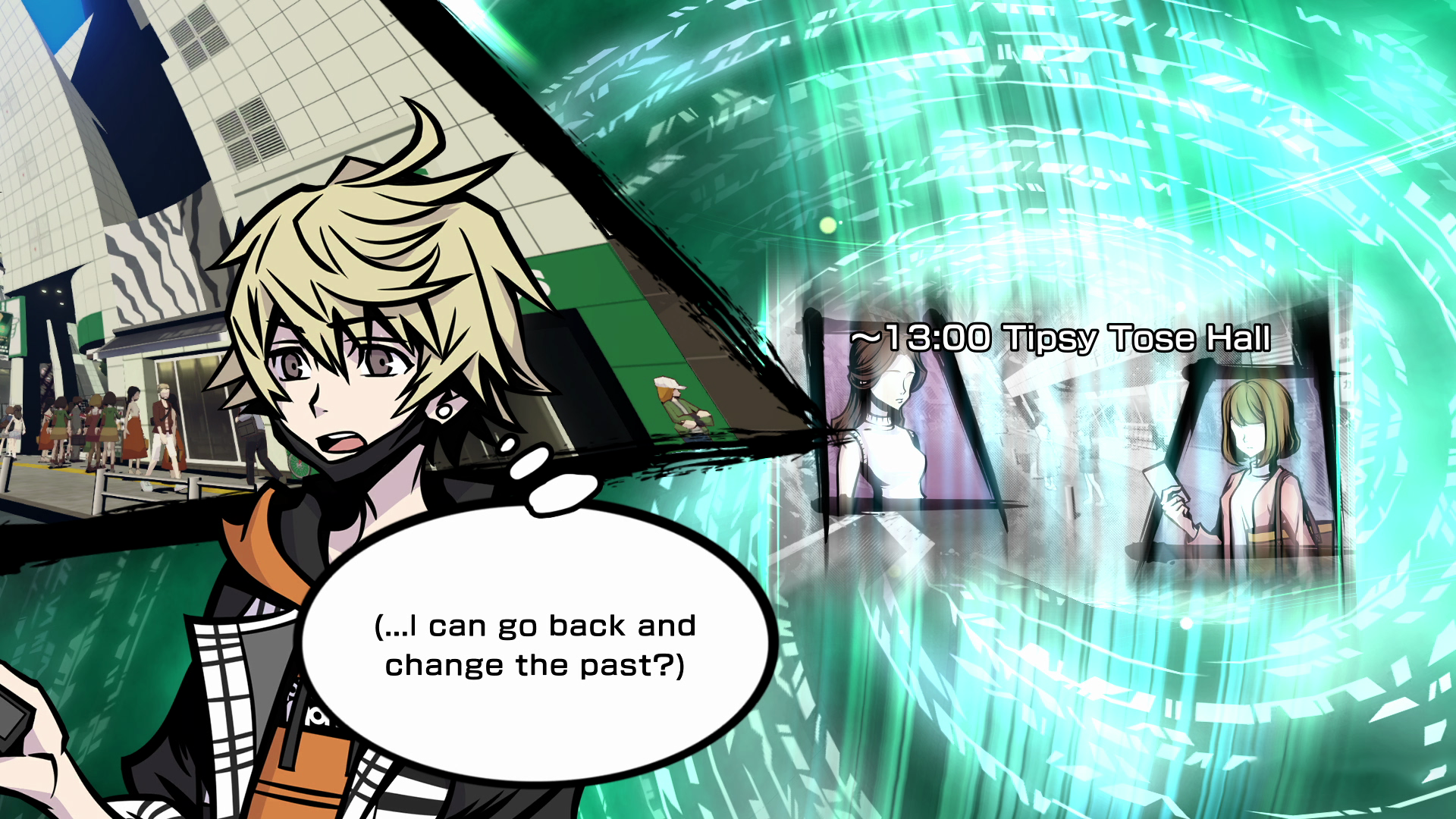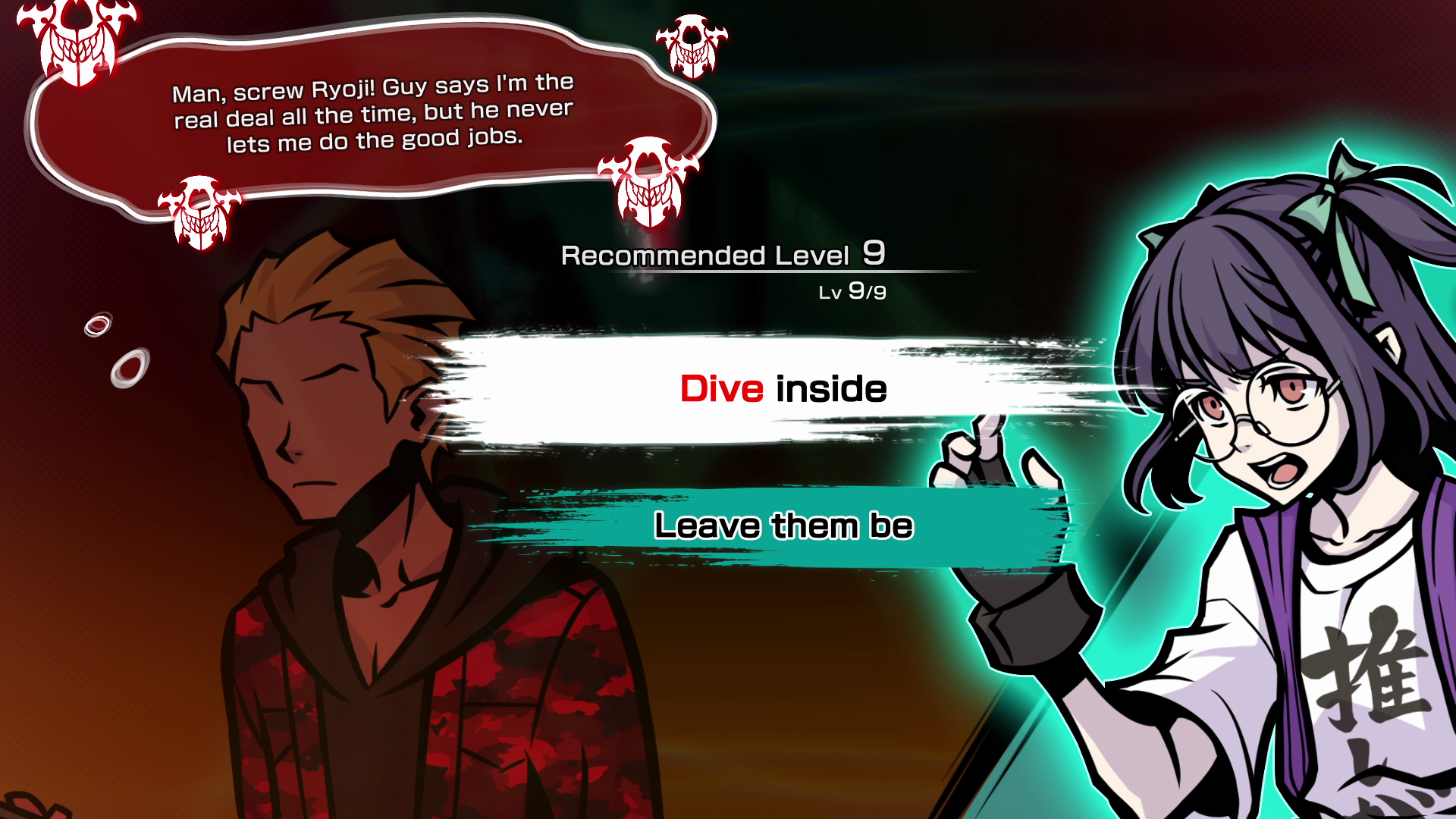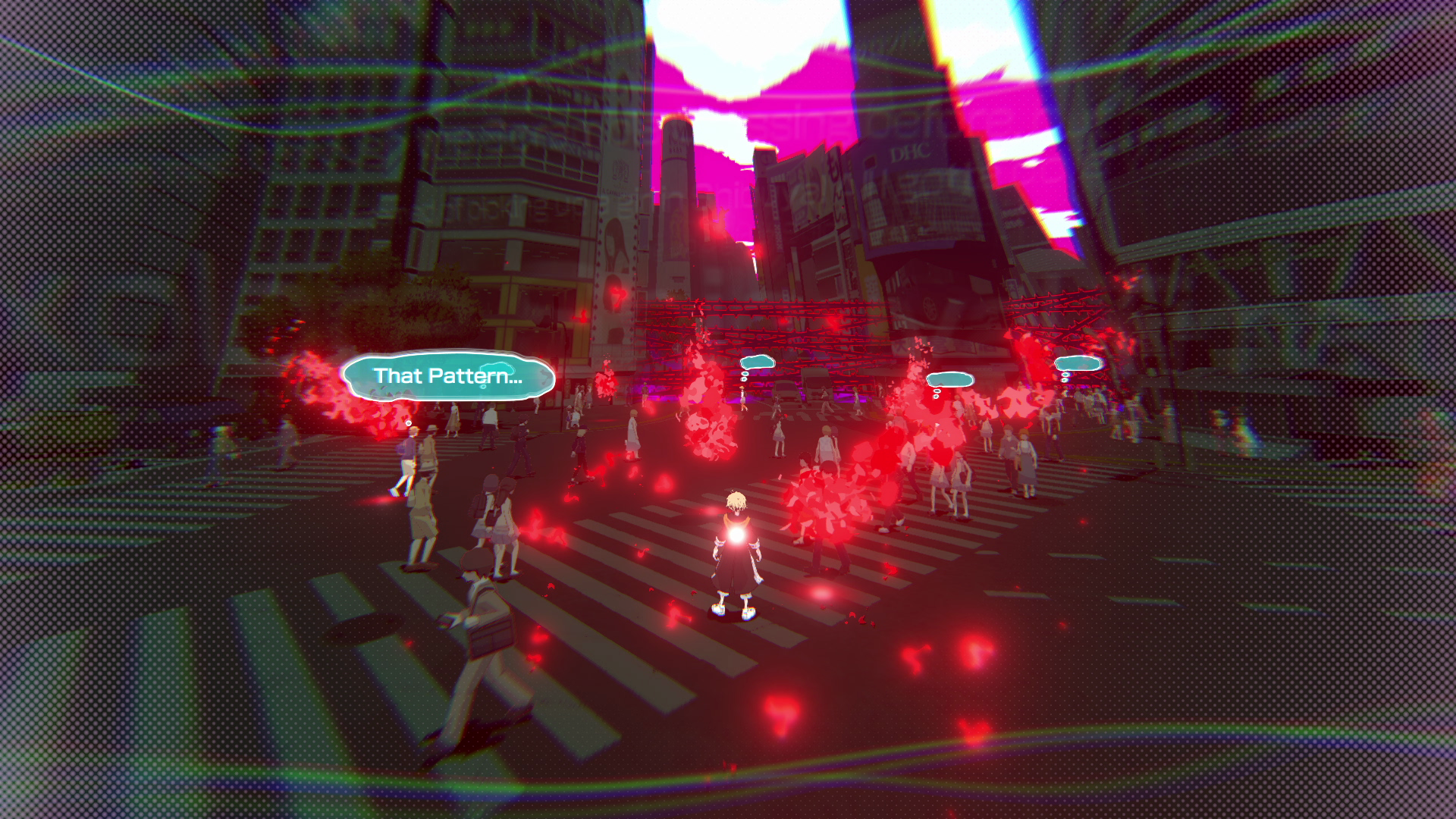When Subarashiki Kono Sekai - It’s A Wonderful World was first revealed in 2006 for the Nintendo DS, there wasn’t a single moment where I wasn’t enamored with the concept of the game. I hung blurry magazine scans up in my locker at school, devoured all of the information about the game that I could from the rare translations available online, and even borrowed my mother’s credit card to buy an expensive import copy of the game when it released in 2007 as a birthday gift to myself.
I didn’t speak a lick of Japanese back then, but I slowly made my way through the the game with a little help from online forums and my own intuition. Even though I had difficulties understanding the more intricate details of the plot, I remember gasping at every twist and turn of Neku’s journey through the Reaper’s Game. My excitement was palpable as I finished the final day of the game, and all I remember is curling up on my couch in tears as “Lullaby For You” by Jyongri played from the tinny speakers of my DS, a bevy of complicated emotions cycling within me as I tried to make sense of what I had just experienced.
Thankfully, The World Ends With You released in English in 2008, and I was able to replay the game over with a lot more clarity, and came out on the other side with a deeper love of the game than I thought I could ever have. For me, no game or franchise could ever top how much of a masterpiece The World Ends With You was in my eyes. The gameplay was unique and fun to experiment with, the art direction stood out on its own as something bold and expressive, and the story touched me as a teenager who had also felt alone in the world until I was able to learn how to reach out to others.
Even as I replayed the game as an adult when The World Ends With You: Final Remix released on the Nintendo Switch, I still found the story compelling and masterfully put together even if the gameplay was worse off due to the lack of certain features present on the DS.
With all of these things in mind, I believed that there was no possible way that a sequel could manage to ever compete with the original game on the DS. The World Ends With You was like catching lightning in a bottle; a rare and ephemeral chance that few developers ever manage to accomplish, especially so long after the original game’s release.
Fourteen years later, I am shocked to find that NEO: The World Ends With You has managed to create an experience just as immersive and affecting as the original game, although it is not one without its own flaws.
(This review is based on the Nintendo Switch version of the game.)
NEO: The World Ends With You, directed by Hiroyuki Ito and Tatsuya Kando, introduces fans and newcomers alike to the vibrant city of Shibuya—the urban ward within Tokyo bed known for its eclectic fashion, street art, and music scenes—as it is experienced through the eyes of Rindo and his friends as they are forced into a game of life-and-death.
Rindo Kanade, the main protagonist of the game, is an indecisive and reserved person, finding more comfort through his online friendship with the mysterious Swallow than his friendships in real life. He is slow to trust others and keeps people at bay, rarely even opening up to his closest real life friend, Fret. Tosai “Fret” Furesawa is a jovial, outgoing teen with a love of fashion and conversation. Despite his ease of communicating with others, he is often seen by his peers as too easy-going, unable to take anything seriously or express genuine emotions when things get tough. Nagi Usui is a reclusive fangirl of a popular in-universe phone game called Elegant Strategy. She’s highly observant and sensitive to other people’s emotions, and obsesses over her favorite EleStra character “Lord Tomonari” who happens to look similar to resident math nerd Sho Minamimoto. Dubbed the “Wicked Twisted”, these characters become an unlikely team of heroes and friends that fight their way through the Reaper’s Game in the ultimate fight for their lives and the fate of Shibuya.
The game begins three years after the events of The World Ends With You: Final Remix, and players will discover the mysteries surrounding the new version of the Reaper’s Game that Rindo, Fret, and Nagi have been thrusted into. Instead of the Shibuya Reapers who ran the Game in the past, it is now run by the Shinjuku Reapers whose original city was destroyed in a mysterious event called the Inversion. In this new version of the Game, players form teams that compete against each other in a series of events throughout the week in order to collect points, and the team with the most points will be granted a wish of their choosing. As the story advances, it becomes apparent early on that the game is rigged against the Wicked Twisters and the other Players, so the Wicked Twisters decide to find a way to win and defeat the Game Master, Shiba Miyakaze.
There are moments in the story where Rindo and his friends find themselves on the verge of being Erased, and it is in these moments that Rindo is capable of reversing time using his special ability called “Rewind”. By rewinding back time, Rindo can go back and alter the events of the past to change the outcome of the future. As Rindo uses his powers, he comes to learn more about the inhabitants of Shibuya as well as gain a better understanding of the Players, Reapers, and his friends in the process of changing their fates.
NEO: The World Ends With You’s story manages to keep players on their toes with each reveal made, and just as players begin to feel like they’ve got an idea of what direction the game might be going, it manages to turn things right on its head and deliver something fresh and impactful that will resonate with players.
While I won’t spoil any details about later events in the game, I found that having knowledge about the original game goes a long way in appreciating certain events that happen, and at times it is critical to know about these past events, especially things that happened in The World Ends With You: Final Remix’s “A New Day” which is only available in the Nintendo Switch port of the original game.
Some players may feel a bit adrift if they have not played the previous game in the series, and even long-time fans will be left with certain questions after finishing the game, though some of these mysteries are clearly meant to be left open ended for the potential of more to come in the future rather than there being a lack of answers being provided. There is plenty for fans to discover after finishing the game, though.
The story is where NEO: The World Ends With You shines, but the gameplay is also fun and engaging. As players progress through the game, they have to fight against the Noise, animal-like creatures that serve as this game’s enemies. Rindo and his friends fight against the Noise using Pins with special psychic abilities. Players can have up to six Pins equipped as they expand their party, and each one is mapped to one of the buttons on the controller. Normally only one type of a certain button input can be equipped to a party member, but later on players can unlock an ability that allows you to have multiple pins that use the same input. This helps reduce the strain some people might get while playing this game as it is difficult to press multiple buttons at the same time.
As players battle the Noise, they will trigger Beatdrops as you chain combos, and these Beatdrops eventually build up to special attacks that can be triggered in combat. These special attacks become critical later on in the game in order to quickly defeat enemies in order to collect more points in order to level and evolve pins.
Outside of combat, players can spend their time visiting restaurants in order to eat permanent stat-boosting food that can increase the HP, Attack, Defense, and Style points for each character, or purchase clothing items from stores that will augment each character’s stats and give them a special ability that can aid players in combat. Each clothing item requires a certain level of Style in order for these abilities to be unlocked, so fans will need to consume a lot of Style-boosting foods in order to gain access to some of the best abilities in the game.
Players can press the R button to scan for Noise and also read the thoughts of the wandering citizens of Shibuya, although I’ve found the thoughts to be less varied than the original game’s variety. Rarely would I ever spend time scanning an area for new thought bubbles unless the game prompted me to for story reasons, though the ones that are present are humorous and help make Shibuya feel more alive. Sometimes I would experience issues where the whole screen would turn gray when I would attempt to read a person’s mind, although it would only happen after playing the game for long stretches of time.
Scanning is also required to make use of Fret’s Remind and Nagi’s Dive abilities. Fret is capable of reminding people about certain things they have forgotten by putting together a scrambled picture that is made clear by rotating the left and right joysticks. The puzzles are simple enough to solve, but they can be a bit tricky to since they require players to land on a specific sweet-spot with the joysticks.
Nagi can dive into the minds and hearts of others in order to fight Noise and clear out negative thoughts that are clouding their minds. Each round of these battles feature Noise with special effects that affect the player’s HP like HP Drain and HP Recovery, or they augment the Noise in order to make them more difficult to defeat like the Big Noise status. These battles range from being very simple to being extremely difficult, especially later in the game when enemies get harder to defeat. Many of these battles give players Friendship Points that are used to unlock abilities in the game.
Missions that require the player to make use of Fret and Nagi’s abilities can be a bit repetitive and formulaic, but overall the addition of these features has given new depth to the new main characters and these unique talents end up being great reflections of their personalities that are paid-off wonderfully in the climax of the game.
Takeharu Ishimoto once again impresses as the composer of NEO: The World Ends With You, giving the game its vivacious and spirited sound through beautifully produced rock, hip-hop, and pop songs. Songs like “bird in the hand” and “Storm” are catchy and will have fans singing along the longer they hear them. Even lyric-less songs like “Beyond Oblivion” and “a tranquil mind” perfectly set the stage for events in the game. New versions of old classics return like “Twister” and “Three Minutes Clapping”, and veteran fans of The World Ends With You will be happy to hear a new version of Death March’s “March On”. Even with so many standout songs in the game, I couldn’t help but feel like the game needed more music, but this is mainly a complaint born from being spoiled by Ishimoto’s frequent music experiments and remixes over the last 14 years.
The stylish art direction of the original game returns in NEO: The World Ends With You with Tetsuya Nomura and Gen Kobayashi serving as the character designers alongside franchise newcomer Miki Yamashita (Kingdom Hearts χ Union Cross). Every 2D scene is dynamic and exciting to watch thanks to the bold art style of the main characters, and many key NPCs and supporting characters are given beautifully detailed designs full of lively expressions and poses.
Static 3D character models for key characters are also full of detail, and it is a shame many of them are barely visible due to the game’s locked camera angles and are obscured by the game’s 2D cutscenes. While in combat, the models for the playable cast and enemies alike look good, although it becomes clear they are not as polished as they could be due to the fact that they are often in motion with tons of special effects from combat obscuring them. The animations themselves are impressive, though, and the developers even went as far as giving each playable character their own unique dodge and idle animation. There are certain parts of the game where you can tell more of the budget was focused on making sure certain models were high quality while others were definitely lower priority.
Major bosses throughout the game are given extra detail and are phenomenally designed, especially the big bosses in the latter half of the game, but there are way fewer bosses in NEO: The World Ends With You than in the first game. 3D models for the city’s denizens are not as appealing to look at, sadly. Their rough, almost blocky designs were clearly done to save on resources as the game seems to procedurally generate them and direct them through the streets of Shibuya with a crude AI. Overall, you can tell that there was a clear compromise that had to be made because of the transition to 3D models, although it is clearly not one that has compromised the vision and scope of the game.
The world map sometimes takes on an almost pop-up book-esque style where backgrounds and buildings seem to fold, distort, and loom over Rindo as the player navigates Shibuya. Other times, the map is stationary as the camera fixes on one specific area of the map before switching to the next as Rindo runs through the streets of Shibuya, and this unique design clearly gave developers the ability to focus on only what they wanted players to look at while exploring the city, which means iconic landmarks in the real-life Shibuya are highlighted and displayed proudly within the fictional world of NEO: The World Ends With You.
In the end, NEO: The World Ends With You stands up well alongside The World Ends With You, and I find myself wishing there was even more for me to enjoy after spending over 50 hours playing the game. The new cast of characters are memorable in their own right, and the unique story crafted by Ito, Kando, Nomura, and all of the staff involved with NEO: The World Ends With You has come together to make something just as memorable as the original.





